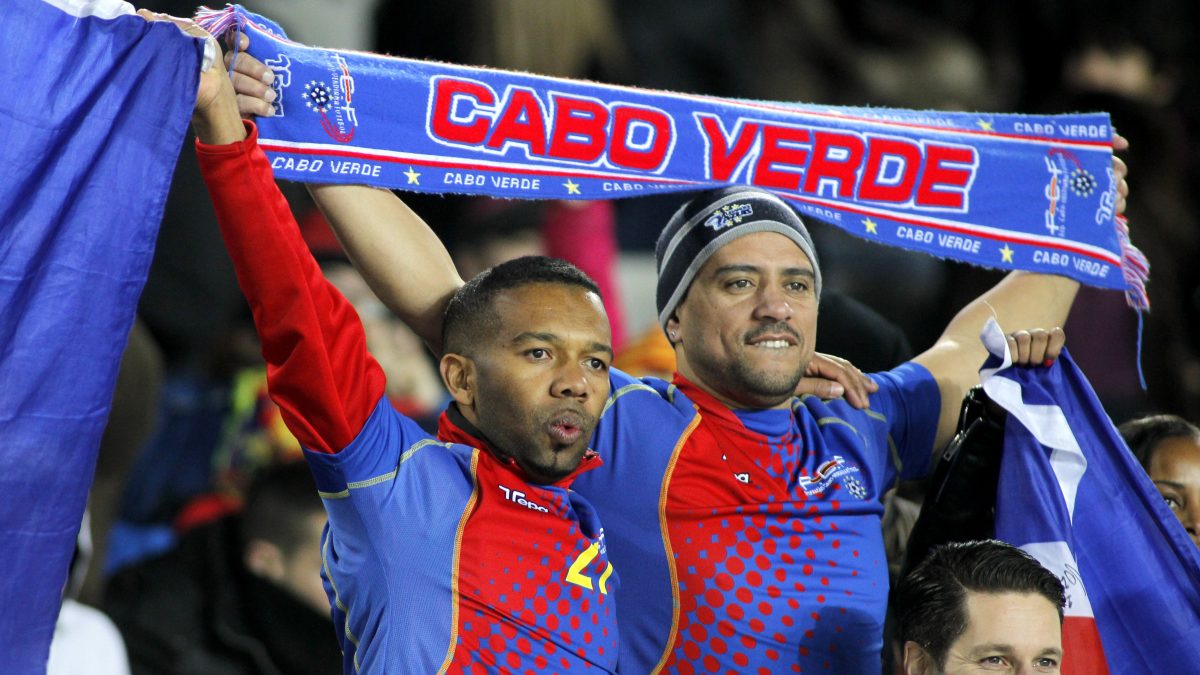
Cape Verde’s rise has been years in the making, and it now sits one win from history. A nation of a little over half a million people, scattered across an Atlantic archipelago and knitted together by a vast diaspora, has outworked and out-thought bigger names in Africa’s 2026 qualifying. The Blue Sharks have turned narrow margins into momentum, leaning on organization, quick transitions, and a collective belief that’s traveled as easily as the flag, from Praia to Rotterdam to Boston. Recent results against Cameroon and Angola were not one-offs. They were a pattern.
In 2013, Cape Verde thought it had earned a place in Africa’s final World Cup playoff round by beating Tunisia away from home. But aghast, the country fell to disqualification days later for fielding an ineligible player. The heartbreak stings to this day. But it taught the federation the cost of small mistakes.
By the 2022 cycle, the team had matured enough to take Nigeria to the final day, drawing in Lagos with qualification on the line. Along the way, Cape Verde learned to manage games rather than chase them, and it invested in upgraded stadiums that allowed decisive matches to be played in front of its own fans.
Public mood carries quiet confidence with the energy of an underdog. The running joke that the “second-smallest ever” could walk into a 48-team World Cup has morphed into an expectation to finish the job. Clips of the pitch invasion in Praia are now part of the nation’s memory. The conversation has shifted from whether Cape Verde belongs to what it could do once it gets there.
How a small nation plays big
Tactically, Cape Verde keeps it compact, then breaks with intent. The back four holds its line, the midfield presses in waves, and the front three run at space instead of waiting for it. Set pieces matter, but so do the first five seconds after a regain. When the game tilts, the team doesn’t panic. It manages tempo, buys rest with the ball, and forces opponents to take risks from poor zones. That’s how a one-goal lead against Cameroon became a celebration, not a siege.
The scale of the moment goes beyond football. A World Cup berth would be a binding story for a country that has always lived across borders. Diaspora families who grew up speaking Kriolu in Rotterdam or Providence would see the flag among the finalists. Tourism boards would get a rare burst of organic attention. Kids on every island would have a new reference point for what’s possible.
There’s also a warning in the romance. Other small nations rode the high, then stalled. The difference is what happens next: ring-fence the windfall, build a permanent training base, keep coach education flowing, and formalize the pathway from school fields to senior caps. That turns a debut into a standard.
Cape Verde’s story fits the moment’s language, too. The team is efficient, modern, and unfussy. It values process over noise. It celebrates together and moves on quickly. If it seals qualification, it won’t arrive in 2026 as a novelty. It will arrive as a plan that worked.
What this changes, and what it doesn’t
Qualification would change how the world sees Cape Verde. It wouldn’t change how the team sees itself. The same principles that beat favored opponents in qualifying will be needed in North America, where the gaps are smaller and the margins tighter. Results will be measured in details: defensive spacing in the channels, the first pass out after a clearance, the courage to play when the easy choice is to launch. The Blue Sharks have been doing that. Now they have to do it under brighter lights.
The rest is simple. Win the next one, then win the day after. Let the noise come from outside. Let the football speak the way it has all year.
World Cup 2026 will be the stage Cape Verde has chased for two decades. The team that once used a continental tournament to announce itself is ready to use another as a springboard. For a country that learned to turn distance into connection, this would be a fitting destination. And a beginning.